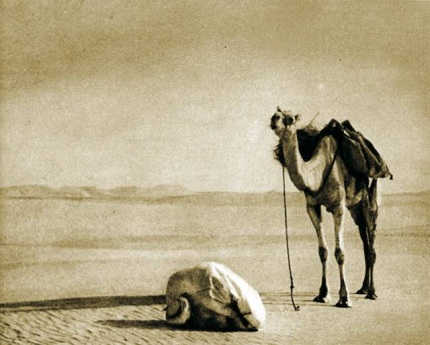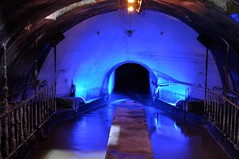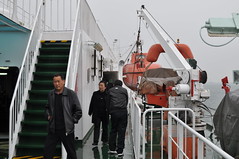
With the summers conference season over, GigaScience are still keeping mobile, and this week Laurie is taking in “Beyond the Genome”, our BioMed Central stablemates Genome Biology and Genome Medicine meeting in Washington

With the summers conference season over, GigaScience are still keeping mobile, and this week Laurie is taking in “Beyond the Genome”, our BioMed Central stablemates Genome Biology and Genome Medicine meeting in Washington

Our whistlestop summer conference tour circumnavigating the globe has come to a jetlagged end, with the final conference being last weeks HUPO (Human Proteomics Organisation) congress in Geneva.
Latest stop on the GigaScience magical mystery conference tour is Science Online London, and this year they have tried to make the format more interactive by organizing several interactive workshops and breakout sessions, including one on blogging that this is posting is a product of. One of the main themes running through the meeting has of course been open science (especially in the great keynote by Michael Nielson), and open-data
ICSB 2011 left me with a greater than ever appreciation for, to borrow from the title of the last plenary session, the complexity of life. I was impressed by the increasingly complex and explanative models that are being built, and faster and more detailed imaging methods under development, not to mention the exciting new applications of systems biology for disease treatment.I am sure I’m not the only one who feels this way.
As those of you who have been paying attention well know, I am currently attending this year’s International Conference on Systems Biology (#ICSB) meeting in either Heidelberg or Mannheim (there’s ongoing debate about the meeting locale). The meeting opened yesterday with a plenary talk by Jean Peccoud talking about DNA “grammar,” making linguistic models of yeast cell cycle regularly network genetics, and the open source application (with a

Working at a data center as big as the BGI, and launching a journal focused on maximizing data use, we have followed the many calls over the years for improved incentives and methods to aid and reward scientists in spending the considerable time and effort to share their data.

Our busy summer on the road continues, with further globetrotting to meet authors and collaborators, get the message about GigaScience out, and hopefully at the end of it get some papers. This week Laurie and Scott will be at the Datacite meeting in Berkeley, meeting the people helping us to produce our data-DOIs, learning about where data-citation is going, and also doing a short presentation. As always check our twitter
I just got back from attending the IBRO World Congress in Florence and the CNS*2011 meeting in Stockholm. All I can say is: lucky me. Okay, clearly that’s not all I can say. They were both wonderful meetings and it was great to see so much good neuroscience going on. IBRO had quite the turnout with 4,200 people attending this year.

So that’s ISMB over for another year. The worlds computational biologists are now sleeping off their Austrian wine and Sacher Torte hangovers on flights back home, hopefully inspired and brimming with fresh ideas for the next year. On the whole it seemed a productive and positive meeting, and whilst personal perspectives always differ depending on the tracks attended, there did seem to be several recurring themes.

In this era of “big-data” and supposed data-tsunamis, being able to sift through the vast swathes of information and find what you are looking will become more and more important.